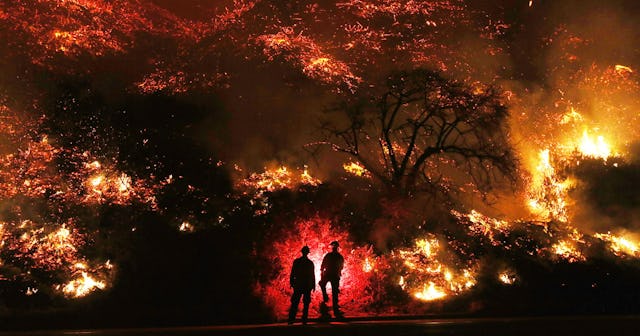11,000 Scientists Declare We Are In The Midst Of A 'Climate Emergency'

A new report endorsed by over 11,000 scientists claims “untold human suffering” will be in the near future
For several decades the topic of global warming — whether it really exists or how severe of an impact it is having on the world — has been heated amongst researchers and politicians. However, a damning new report, endorsed by over 11,000 of the world’s leading scientists, claims that climate change isn’t just an unfortunate reality. Instead, we are currently in the midst of a global climate emergency with “untold human suffering” inevitable unless we do something about it fast.
“We have joined together to declare a climate emergency because the climate change is more severe and accelerating faster than was expected by scientists,” Bill Ripple, professor of ecology at Oregon State University and co-author of the paper, explained. “Many of us feel like the time is running out for us to act.”
According to the study based on 40 years of data and published in the medical journal BioScience, government is failing to address the current crisis, which could literally destroy parts of the world.
Researchers presented several figures demonstrating the “suite of graphical vital signs of climate change over the past 40 years.” This included the growth of human and animal population, greenhouse gas emissions, meat production, energy consumption, and tree loss.
“An emergency means that if we do not act or respond to the impacts of climate change by reducing our carbon emissions, reducing our livestock production, reducing our land clearing and fossil fuel consumption, the impacts will likely be more severe than we’ve experienced to date,” said lead author Dr. Thomas Newsome, from the University of Sydney. “That could mean there are areas on Earth that are not inhabitable by people.”
They suggest six methods of mitigating some of the effects:
Energy: Make energy practices more efficient, ultimately moving to low-carbon renewables.
Reduce emissions: Climate pollutants, including methane, black carbon and hydrofluorocarbons, need to be reduced.
Restore Earth’s ecosystems: We need to save the planet by helping restore endangered ecosystems, including reefs, forests, grasslands. At the same time, we need to prevent the loss of habitat and biodiversity.
Diet: Scientists encourage the reduction of animal products, promoting a mostly plant-based diet.
Refocus from GDP growth to sustaining ecosystems: In order to improve human well-being, scientists urge politicians to focus more on the environment and less on growing the economy.
Population control: It is crucial to stabilize — and eventually reduce — the world population.
While things have been mostly going downhill in regards to climate change in the last 40 years, scientists did acknowledge that the recent grassroots movement — led by activists such as Nobel Prize nominee Greta Thunberg — has positively impacted the environment.
“We are encouraged by a recent surge of concern,” they wrote. “Governmental bodies are making climate emergency declarations. Schoolchildren are striking. Ecocide lawsuits are proceeding in the courts. Grassroots citizen movements are demanding change, and many countries, states and provinces, cities, and businesses are responding.”
And, they are actually hopeful that change is coming.
“The good news is that such transformative change, with social and economic justice for all, promises far greater human well-being than does business as usual,” the report concludes. “We believe that the prospects will be greatest if decision-makers and all of humanity promptly respond to this warning and declaration of a climate emergency and act to sustain life on planet Earth, our only home.”